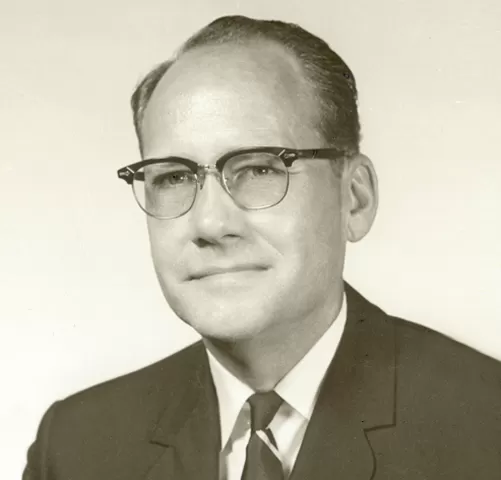Clarence L. “Carl” Brumback, M.D., M.P.H. (1914-2012) was born in Colorado and raised in Kansas, where he completed medical school at the University of Kansas. During World War II Brumback served in the U.S. Army Medical Corps.
After the war Brumback earned his masters degree and worked for the U.S. Atomic Energy Commission. Palm Beach County hired Brumback as its first director of public health in 1950, a position he held until 1986.His wife, Lucile Gillie Brumback, volunteered for the department for 21 of those years.
By talking with people countywide, Dr. Brumback identified 56 health problems, and minimal resources to address them. Many solutions came through Brumback’s creativity and ability to partner with organizations of all kinds.
The first problem Brumback addressed was polio, which was epidemic. Because the county had no sewage collection or treatment, Lake Worth Lagoon had become a health hazard. He educated the community until the county established a sanitary district. Through a former mentor who collaborated with Dr. Jonas Salk, Brumback also arranged for Palm Beach County to participate in testing the Salk polio vaccine.
The racial segregation of the times complicated many health issues. After talking with the black community, Brumback made changes that increased the quality and accessibility of their care.Brumback found that the problems of schoolchildren were not limited to physical health. He worked with the Mental Health Association to open a child guidance center at what became the 45th Street Mental Health Center, then Oakwood Center.
Migrant farm workers had almost no access to health care in 1950. Brumback worked with Congressman Paul Rogers to pass the national Migrant Health Act of 1962. The county health clinic in Belle Glade was named for Brumback.
Brumback called the County Health Department “an experiment in health services delivery which developed over 50 years.” To maintain a source of appropriately trained doctors, Brumback created the Residency Program in Preventive Medicine/Public Health with the University of Miami. He remained coordinator of the program long after retirement.


